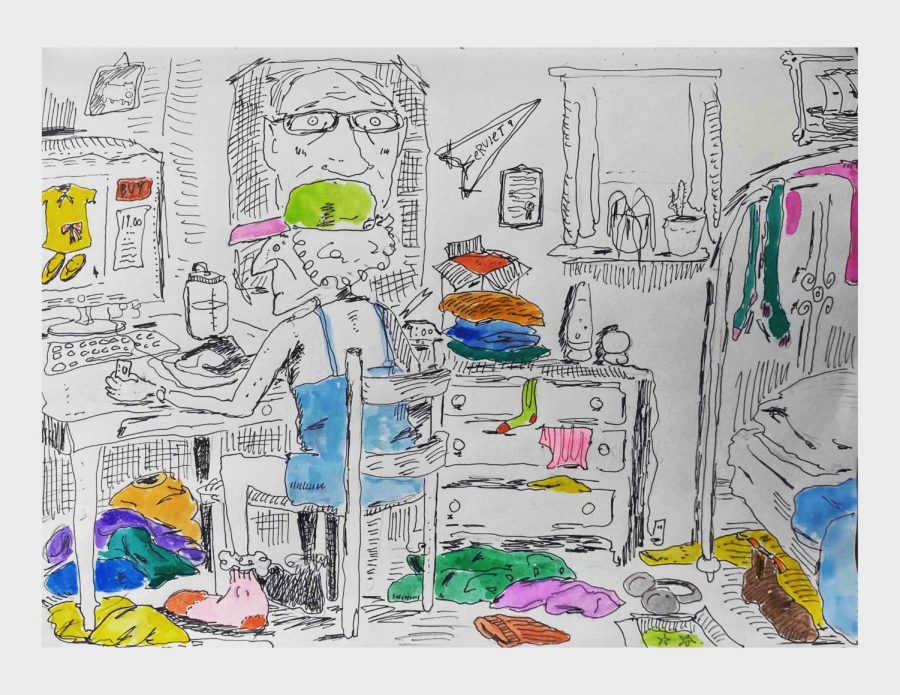Ditch fast fashion, the world depends on it
November 12, 2021
Climate anxiety seems to tax almost everyone, but many people are failing to take action when it comes to their closets.
Born into a society dominated by consumerism, many young people care deeply about the planet. However, they fail to see the impacts of their individual actions, particularly by supporting brands which operate with little regard for the health of our planet.
The fashion industry makes up 10% of global carbon emissions. It is the second largest water consuming industry and 85% of textiles go into the dump each year, according to a July 28 2020 GASP.org article.
Fast fashion, the mass production of inexpensive, trendy apparel was introduced in the ‘80s, and today Americans buy five times more clothing than they did in that period, according to an Aug. 29 2019 Wall Street Journal article.
The culture of consumption manifests in Americans’ everyday lives and people rarely stop to think about the effects of their actions in a larger sense.
Yes, Shein sells cute clothes, but ordering 20 items that will circulate through a wardrobe within a few weeks leaves a profoundly large impact on the environment.
Consumers fall into the trap of buying new clothes with every new season or microtrend.
Brands encourage this, with companies like Zara producing more than 20 different collections a year, far outpacing what an individual should buy in a single year, according to a Feb. 3 2020 Vox article.
The rhetoric surrounding the climate crisis centers around wanting to change the government and its policies, but changes to our culture are also imperative.
Individuals are responsible for what they consume. If clothes come with huge carbon price tags or pollute a community’s water source, the consumer holds a part of that responsibility.
Making the right choice can be exhausting. The implications of contemporary life leave almost no choice but to have some negative impact on the environment, which can feel like a catch-22.
For example, thrifted clothes add new pieces to a wardrobe without having the same impacts on the environment; however, thrifting clothes can have its own set of problems, leaving less for those who do not have the privilege of other options.
Consumers need to move towards buying less, repairing what they have and borrowing clothes from friends or family when needed.
Americans need to start being satisfied with less.
Purchasing new items may be necessary, and in those instances, consumers have the responsibility to consider how different companies treat the planet.
There’s no need to buy 10 pairs of parachute pants from the vendors outside the Davis Center, they never look good anyway.
Don’t buy into the narrative that individual actions don’t make a difference. They do.
